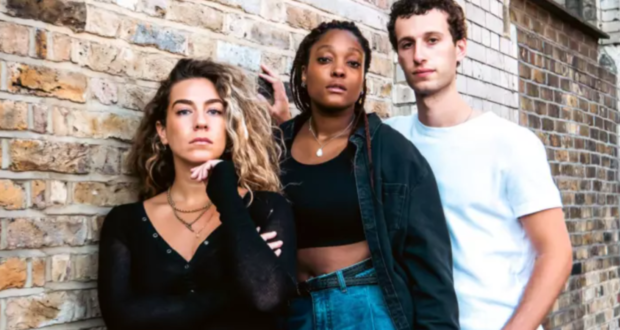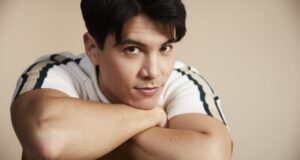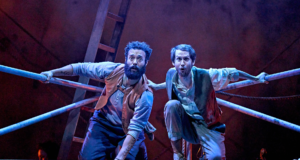Writer Kath Haling discusses bringing her new play to The Hope Theatre
Writer Kath Haling’s new play The Least We Could Do debuts at the Hope Theatre this month. In a world now overrun with social media bullying, it addresses the issues of toxic behaviours aimed at public figures. We were delighted when Kath agreed to stop by for a chat about the show.
Thanks very much for taking the time to talk to us Kath. Can you begin by telling us about the theme of the play and how the idea for it came about?
The idea to write this play came after I read an incredible article back in early 2020. It was just after Caroline Flack had tragically taken her life and the article expressed how we should take a look in the mirror and really question our behaviour towards celebrities. What really hit home was that I realised though I consider myself a very kind and caring person, I knew I had engaged in toxic chat about celebrities. I then became hyper aware of this witch-hunt, mob mentality that occurs and I knew it was something I wanted and needed to write about.
What’s been your research process in putting the plot together?
It’s been a tough one to research in the sense that I really dug deep into how Caroline Flack was treated by the media and looked over many articles about her, interviews with her and honestly it made me extremely sad because it’s so very clear how immensely mistreated she was. I delved into trolling and witch-hunts around other celebrities too and it’s heartbreaking to see how these people have been and continue to be treated. I’ve also spoken to people within the media, on both journalistic and celebrity sides. I sat with all the information and slowly the plot for this particular play came to be.
Tell us about the cast you’ve chosen.
Well firstly let me just say the admiration and respect I have for actors is without limits. Seeing how deep our cast dived into this narrative, seeing how vulnerable they’ve needed to be is unbelievable to me. Our journalist Charlie is played by Melissa Saint who brings a very dynamic energy to the stage. Both our female characters are strong women and our actors really bring that. Olivia Lindsay plays Levi Childs, our celebrity and in her audition I instantly felt her star quality, that kind of feeling I’d imagine Caroline had when she walked in a room. You just want to be near her. Dan Wolff plays Kieran, Charlie’s fiance. I’d seen Dan perform before and found his performance absolutely magnetic. He really draws you in. Each of our characters are very human. Good people who don’t always make good decisions. Just like real life. I want the audience to feel shocked or maybe a bit judgmental about what they do but also at the same time empathise with their reasoning.
Do you think that the media are perhaps now under pressure to have a duty of care to performers? And does the desire for sensationalism tend to bypass that, so they end up in damaging stories anyway?
I feel like the media and public perception has played a massive role in the slating/downfall of celebrities and even anyone in the public eye for decades. What became apparent to me after Caroline Flack took her own life was that no one seems to be learning any lessons from this kind of loss. It wasn’t long after that Meghan Markle was getting dragged through the press. And I know even reading that everyone will probably have a strong opinion. There are so many more examples that I’d be here forever if I mentioned it all. I’d say yes, the desire for sensationalism seem to bypass everything. I recall when Kit Harrington was making headlines from a drunken bar incident and it really broke my heart. I was thinking, here is a guy who is possibly at the lowest point of his life, a point where is without a doubt unable to cope with the media frenzy and yet there he was, pictures all through the papers and online. When he went to rehab I recall people and publications making jokes about how fancy it looked. I mean, when does it stop? I just think we’re lucky he survived it. Sadly not everyone does.
What are you hoping the individuals in the audience will take away from the production? Are you optimistic that things can change?
We’ve tried very hard with this play not to completely point the finger or make one particular statement more so our aim is to raise the conversation. We want people to talk about why we buy into the sensationalism of it all. I think if it helps us to think twice before slandering someone and engaging in a massive, toxic conversation about a celebrity we don’t even know, maybe that’s a win. Maybe it would be nice if instead of dragging someone down we focus more on building someone up? I think getting people aware and talking is the main aim.
What are your plans for the show after this run at the Hope?
Our incredible Director Katharine Farmer, who has been onboard from the day I read the article and I very much see this as the first step in a long path for this play. The relevance of the subject matter is sadly not going away anytime soon so the play will remain current for some time. The intimacy of the gorgeous space at The Hope is perfect for this run however I definitely can see this show moving to a larger stage in the future.
Thanks very much to Kath for taking the time out of her busy schedule to talk to us about the play.
The Least We Could Do runs at the Hope Theatre from 10-28 October. Further information and bookings can be found here.
 Everything Theatre Reviews, interviews and news for theatre lovers, London and beyond
Everything Theatre Reviews, interviews and news for theatre lovers, London and beyond



